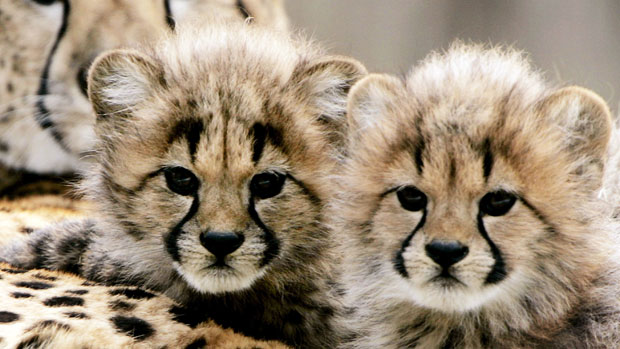Cheetah smuggling 'driving species towards extinction'
Demand for cheetahs as luxury pets in the Middle East is threatening wild populations

A free daily email with the biggest news stories of the day – and the best features from TheWeek.com
You are now subscribed
Your newsletter sign-up was successful
The future of cheetahs in the wild is under threat as a result of cubs being smuggled into the Middle East to feed the demand for exotic pets, new research suggests.
The Convention on the Trade of Endangered Species (Cites) found that almost two-thirds of smuggled cheetah cubs die in transit.
According to the Guardian, the study revealed that large numbers of cheetah cubs are being taken from the Horn of Africa to be "trafficked by boat from Somalia to Yemen and then by road into the Gulf states".
The Week
Escape your echo chamber. Get the facts behind the news, plus analysis from multiple perspectives.

Sign up for The Week's Free Newsletters
From our morning news briefing to a weekly Good News Newsletter, get the best of The Week delivered directly to your inbox.
From our morning news briefing to a weekly Good News Newsletter, get the best of The Week delivered directly to your inbox.
The wild cheetah population in the Horn of Africa "numbers about 2,500" large cats, the paper says, and "fewer than 10,000 [wild cheetahs] remain" worldwide.
Cheetah smuggling in Africa, Asia, and Iran has risen in recent years because of demand for big cats as luxury pets in Gulf countries.
The Cites study, which includes photos of domesticated cheetahs being walked on leashes and sitting in car passenger seats, says "the keeping of big cats in residential areas across the Arabian peninsula poses serious environmental and safety risks, both to people as well as the cats".
Cites calls for stronger international cooperation between nations with high smuggling rates.
A free daily email with the biggest news stories of the day – and the best features from TheWeek.com
Nick Miller, a contributor to the report, told The Guardian he was "cautiously optimistic" that a working group formed in response to the problem "would curb the illegal trade in cheetahs with better law enforcement".
Cites' head of science, David Morgan, said that Gulf nations were ready to confront the issue. "Middle Eastern countries spoke up very clearly and this has been a positive development," he said. "Qatar, the Emirates, Kuwait all recognised the problem."
-
 What to know before filing your own taxes for the first time
What to know before filing your own taxes for the first timethe explainer Tackle this financial milestone with confidence
-
 The biggest box office flops of the 21st century
The biggest box office flops of the 21st centuryin depth Unnecessary remakes and turgid, expensive CGI-fests highlight this list of these most notorious box-office losers
-
 What are the best investments for beginners?
What are the best investments for beginners?The Explainer Stocks and ETFs and bonds, oh my
-
 Epstein files topple law CEO, roil UK government
Epstein files topple law CEO, roil UK governmentSpeed Read Peter Mandelson, Britain’s former ambassador to the US, is caught up in the scandal
-
 Iran and US prepare to meet after skirmishes
Iran and US prepare to meet after skirmishesSpeed Read The incident comes amid heightened tensions in the Middle East
-
 Israel retrieves final hostage’s body from Gaza
Israel retrieves final hostage’s body from GazaSpeed Read The 24-year-old police officer was killed during the initial Hamas attack
-
 China’s Xi targets top general in growing purge
China’s Xi targets top general in growing purgeSpeed Read Zhang Youxia is being investigated over ‘grave violations’ of the law
-
 Panama and Canada are negotiating over a crucial copper mine
Panama and Canada are negotiating over a crucial copper mineIn the Spotlight Panama is set to make a final decision on the mine this summer
-
 Why Greenland’s natural resources are nearly impossible to mine
Why Greenland’s natural resources are nearly impossible to mineThe Explainer The country’s natural landscape makes the task extremely difficult
-
 Iran cuts internet as protests escalate
Iran cuts internet as protests escalateSpeed Reada Government buildings across the country have been set on fire
-
 US nabs ‘shadow’ tanker claimed by Russia
US nabs ‘shadow’ tanker claimed by RussiaSpeed Read The ship was one of two vessels seized by the US military